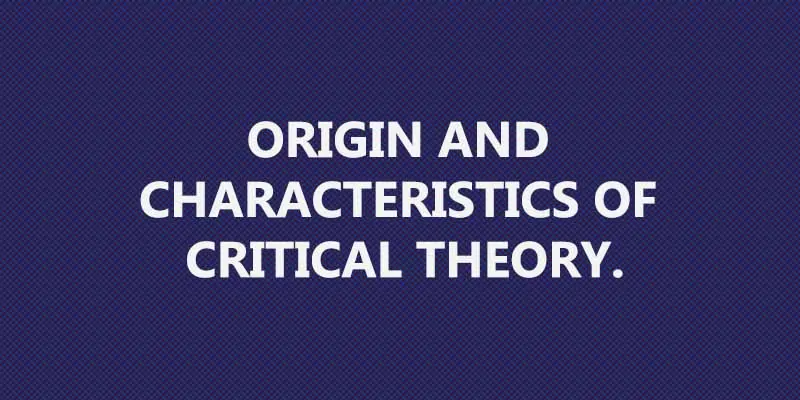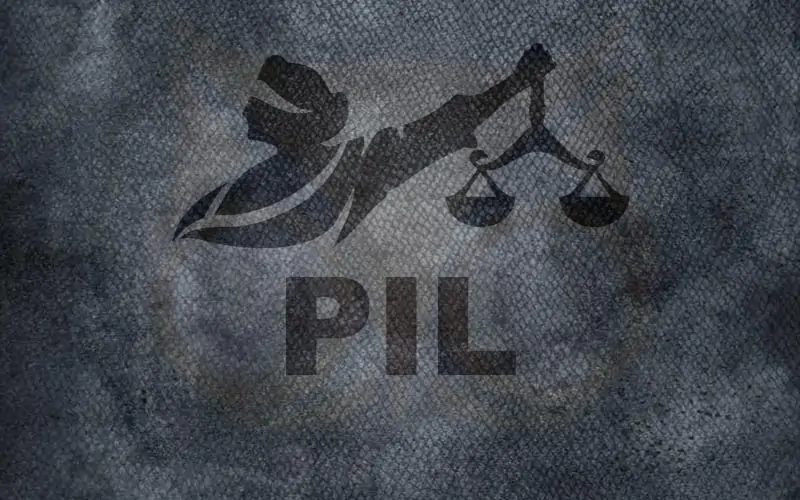Origin and Characteristics of Critical Theory.

Critical Theory aim and objectives is to reduce the systems of administration or dependence and strongly established complete human freedom in the society. Critical Theory provides a vision of a better future, this is only possible in welfare state.
So that, critical theory taking action to create social change, it works to change the structure and system of organization, it works to create consciousness among the individual and it establish a welfare state, which provide equality and parliamentary form of government, where people are all in all.
Therefore, critical theory bring certain change in the social and political situations. It change the system of government from authoritarian to democracy. It improving the quality of organizational life by advocating self-reflection and self-criticism on the part of administrators. It has a strong individualistic, subjectivist and anti-bureaucratic thrust.
Origin and Development of Critical Theory.
Critical theory born out of renaissance in the 18th century, specially in the Europe and America. The term critical theory was first defined by Max Horkheimer of the Frankfurt School of Social Sciences in his essay “Traditional Theory and Critical Theory”.
Critical theory originated and developed by Frankfurt School and Frankfurt School beginning in the 1920s and its principal members are Max Horkheimer, Theoder Adorno and Herbert Marcuse. Critical theory also derives from Kants in 18th century, in his work “Critique of Pure Reason” and from Marx’s in 19th century in his greatest work Das Kapital (capital).
Critical theory also introduced by Jurgen Habermas in 1968 in his work Erukenntnis and Interesse (Knowledge and Human Interests). Some other recent social scientists also contributed, such as Pierre Bourdien, Louis Althusser, Michel Foucault and Bryan Reynolds.
Also read | What is Micro Forecasting?
The critical theory began in early part of 20th century by some prominent writers like George Lukas and Automio Gramaci and later 20th century writers like Jurgen Habermos.
Characteristics of Critical Theory.
Some of the basic characteristics of critical theory has been discussed in the following points:
Contradiction:
A primary characteristics of critical theory is contradiction. Contradiction or tensions happen when the ideas of social systems change over time. It change between how they are and how they could be.
The concept of critical theory works to show the relationship between ideas and theoretical positions and also their social environment in the society. Thus, due to the tensions or contradiction the social system has been changed and this change bring new ideas and process in the mind of the individual.
Dialectic:
Dialectics was the key ideas in Hegelian philosophy, it applied to the process, evolution and development of history. Hegel viewed history as the progressive manifestation of human reason, and the development of a historical spirit.
History, recorded increasing awareness and greater rationality as exhibited on human affairs, human consciousness and human freedom expanded as a result of conflicting intellectual forces, which were:
- The individual spirit.
- The world spirit.
The individual spirit which desired happiness and provided energy, and the world spirit which strived for higher freedom, that come with the knowledge of the self. For Marx, the key idea was not the history of philosophy, but the history of economic production.
Also read | Limited Effects Theory
Thus Marx, like Hegel, believe that dialectics was a powerful tool and it offered a low of social development.
Change:
Change is a universal phenomena and it is a law of the nature. Critical theory playing a significant role for taking action to create social system change, which provides for greater human freedom and self-determination to human beings. The critical theory also gives importance to the subjects as well as inter-subjective aspects of the organization.
Therefore, no change is permanent, it is necessary to understand the changeable nature of society.
Conclusion:
The basic purpose of critical theory is improving the quality of organization by advocating self-reflection and self-criticism on the part of administrators. It also analysis systematic of social conditions and action which is guided by normative purpose. Critical theory provides an opening for conceptualization and it also as a guide for taking action to create social change.
Therefore, changes and reforms in public administration may be analyzed from the perspective of critical theory, and critical theory provides a critique of the status quo in public administration. It attempts to offer critique of public institutions and provide a vision for a better future.
Also Read
- Difference between fixed overheads and variable overheads.
- Various modes of discharge of a contract.
- Principles of Critical Thinking





